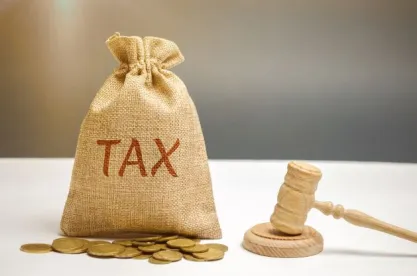On Friday, the Alabama Supreme Court issued its opinion in Ex parte J.C. King III (In re: Anderson Realty Grp., LLC v. J.C. King III), No. SC-2022-0653, addressing for the first time the term “preservation improvements” in the State’s tax sale redemption statute, Ala. Code § 40-10-122(d). The case explains that a host of improvements — including permanent improvements — to tax sale properties are included as a redemption expense, which likely will affect properties bought under the traditional Alabama tax sale framework (rather than the newer Alabama tax lien auction).
What is the Case About?
The property being redeemed had been a rental home that suffered extensive damage from a fire, making it uninhabitable. The owner stopped paying property taxes in 2015 and the county auctioned it to the State at a tax sale the next year. In 2019, the State sold the property to Anderson Realty Group, LLC in its uninhabitable state.
Anderson Realty invested nearly $90,000 to renovate and restore the property, making it habitable once again and fixing the blighted property presenting a hazard to the Jefferson County community. In 2020, Anderson Realty sued quiet title to the property. The owner countered to assert his judicial redemption rights and disputing whether the extensive renovations qualified as “preservation improvements” under the redemption statute.
The trial court sided with the owner, ruling that Section 40-10-122(c)(2)’s reference to “preservation improvements” referred only to the costs incurred by Anderson Realty to prevent further deterioration of the uninhabitable property. The trial court valued these improvements at $10,000 and set the redemption amount accordingly.
Anderson Realty appealed the decision to recover the roughly $80,000 difference, and the Court of Civil Appeals reversed, holding that the trial court had erred in limiting the definition of “preservation improvements.”
What did the Supreme Court decide?
The Alabama Supreme Court granted the owner’s petition for a writ of certiorari to address the meaning of “preservation improvements.” The state Supreme Court affirmed the Alabama Court of Appeals, holding that it properly interpreted the legal question of the appropriate value of preservation improvements in reversing the trial court.
The Court's analysis focused on the statutory framework for property redemption in tax sales, which it determined was rooted in traditional foreclosures. The Supreme Court noted that the Legislature had enacted a 2002 amendment to the redemption statute, which introduced more redemption requirements for properties sold at tax sales that are located in urban renewal districts or that have residential structures, regardless of their location. For properties with residential structures, the 2002 amendment added as a redemption expense the value of all preservation improvements, which is defined as “improvements made to preserve the property by properly keeping it in repair for its proper and reasonable use, having due regard for the kind and character of the property at the time of sale.”
To determine the meaning of this definition of preservation improvements, the Court examined the legislative intent behind the 2002 amendment. It noted that the amendment aimed to address urban blight and deterioration in neighborhoods, particularly in the context of tax-delinquent properties. By requiring redemptioners to reimburse purchasers for preservation improvements, the legislature sought to encourage the preservation and repair of residential properties.
The Supreme Court reasoned that the legislature had drawn on the Court’s previous cases involving mortgage foreclosure redemptions to define preservation improvements. It noted that the definition mirrored the definition of “permanent improvements” used in foreclosure-redemption cases. According to this definition, preservation improvements referred to the improvements made to keep the property in repair for its “proper and reasonable use,” considering the property's kind and character at the time of sale.
Ultimately, the Alabama Supreme Court determined that the trial court erred in limiting the redemption expenses to mere repairs to maintain the property’s uninhabitable condition at the time of sale. Instead, the Court emphasized that preservation improvements Anderson Realty had made included valuable and useful additions and improvements to return the property in the residential neighborhood to its proper use as a single-family dwelling. In so doing, the Court approved the Court of Appeals broad interpretation of the types of improvements for which tax sale purchasers can seek reimbursement for during the redemption process.
Who to Contact?
The court's ruling in Ex parte J.C. King will influence property redemptions following tax sales in Alabama. The opinion underscores the importance of properly documenting improvements made to tax-sale properties and timely responding to redemption requests.





 />i
/>i

